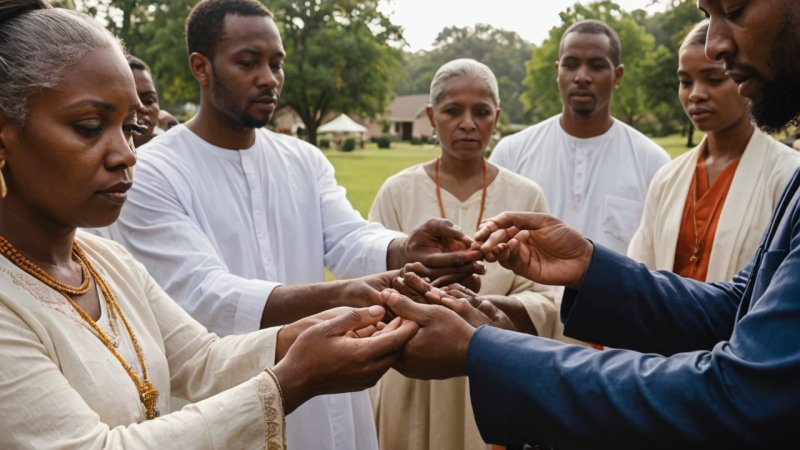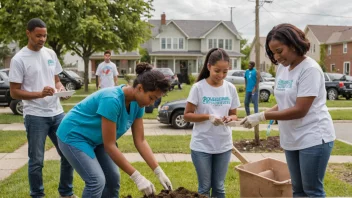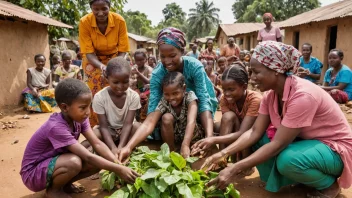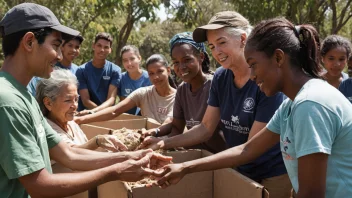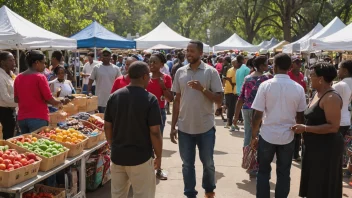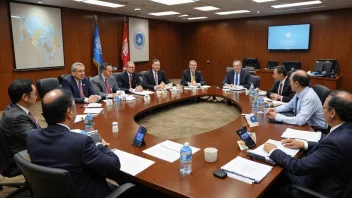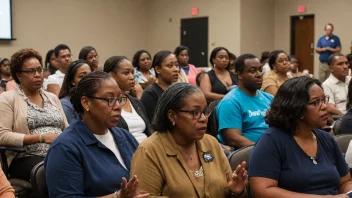In an increasingly interconnected world, the role of religious rituals in fostering community bonding remains a vital area of exploration. These rituals, often steeped in tradition and cultural significance, serve as a means of bringing individuals together, creating a sense of belonging, and reinforcing shared values. From weekly gatherings in houses of worship to annual festivals celebrating cultural heritage, religious rituals provide opportunities for individuals to connect with one another and strengthen their ties to the community. As we delve into this topic, we will uncover how these practices not only enhance social cohesion but also promote emotional and spiritual well-being among participants.
Understanding Religious Rituals
Religious rituals can be defined as structured actions performed for symbolic value, usually within a religious context. These actions can vary widely across different faiths and cultures, encompassing everything from prayer and meditation to ceremonies marking significant life events such as weddings, funerals, and rites of passage. The common thread among all these rituals is their ability to create a shared experience that transcends individual differences, fostering a sense of unity among participants.
The Role of Rituals in Community Bonding
One of the most significant impacts of religious rituals is their capacity to strengthen community bonds. When individuals come together to participate in a ritual, they engage in a collective experience that reinforces their shared beliefs and values. This sense of belonging is crucial in today's diverse societies, where individuals often feel isolated due to geographic mobility or cultural differences. Rituals provide a space for people to connect, share their experiences, and support one another, ultimately enhancing social cohesion.
Creating Shared Identity
Religious rituals often serve as a means of creating and reinforcing a shared identity among community members. For example, in many cultures, annual festivals or holy days are celebrated collectively, allowing individuals to express their faith and cultural heritage together. This shared identity fosters a sense of belonging and pride, as participants recognize themselves as part of a larger community with a common purpose.
Facilitating Emotional Support
Participating in religious rituals can also provide emotional support to individuals during difficult times. For instance, rituals such as prayer circles or communal grieving ceremonies allow members to express their feelings and find solace in the presence of others. This emotional support can be particularly vital in times of crisis, such as after a natural disaster or personal loss, where the community can come together to provide comfort and assistance.
Rituals and Mental Well-being
Beyond fostering community bonds, religious rituals have been shown to have positive effects on mental well-being. Engaging in ritualistic practices can promote feelings of peace, hope, and resilience. The repetitive nature of rituals can provide a sense of stability and predictability, which is especially beneficial in times of uncertainty. Moreover, the communal aspect of these rituals allows individuals to feel connected to something greater than themselves, which can enhance their overall sense of purpose and belonging.
Mindfulness and Reflection
Many religious rituals incorporate elements of mindfulness and reflection, encouraging participants to take a moment to pause, reflect, and connect with their inner selves. This practice of mindfulness can lead to reduced stress levels and improved emotional regulation, contributing to overall mental health. For example, meditation, a common practice in various religious traditions, has been linked to lower anxiety and depression rates, further highlighting the importance of these rituals in promoting individual well-being.
Case Studies: Successful Community Initiatives
Across the globe, numerous communities have harnessed the power of religious rituals to strengthen their bonds and promote social justice. One notable example is the interfaith dialogue initiatives that have emerged in response to religious conflict. These initiatives often involve shared rituals that encourage understanding and empathy among diverse faith communities. By participating in each other's rituals, individuals can break down barriers and foster mutual respect.
Community Healing Circles
In many indigenous cultures, community healing circles are utilized as a means of addressing trauma and fostering unity. These circles often incorporate traditional rituals, storytelling, and communal activities that encourage participants to share their experiences and support one another. Such practices not only promote healing but also reinforce community ties, demonstrating the transformative power of religious rituals in addressing social issues.
How Individuals Can Get Involved
For those looking to engage in their communities through religious rituals, there are numerous ways to get involved. Participating in local religious services, joining community groups focused on interfaith dialogue, or volunteering for community events can all serve to enhance one's connection to others. Additionally, individuals can advocate for inclusive practices within their religious communities, encouraging the incorporation of diverse rituals that celebrate various cultural backgrounds.
Creating New Traditions
Another way to foster community bonding is by creating new rituals that reflect the values and diversity of the community. This could involve establishing annual events that celebrate local cultural heritage, or initiating rituals that address contemporary social issues, such as environmental stewardship or social justice. By actively participating in the creation of new traditions, individuals can help shape a more inclusive and connected community.
Conclusion
Religious rituals serve as a powerful tool for fostering community bonding, promoting emotional well-being, and addressing social issues. As individuals come together to participate in these practices, they create shared identities and provide support to one another, ultimately enhancing social cohesion. In an increasingly fragmented world, the importance of these rituals cannot be overstated. By engaging in and advocating for inclusive religious practices, individuals can contribute to a more connected and compassionate society, reinforcing the idea that together, we can make a significant difference.
